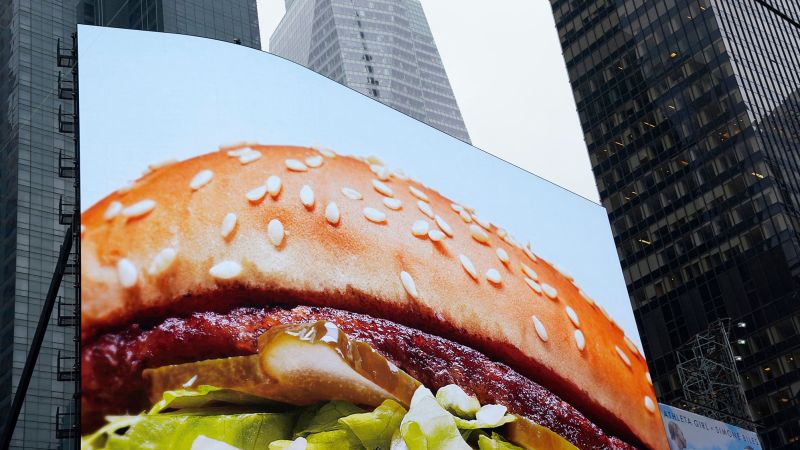Wendy’s and McDonald’s have emerged victorious from a lawsuit that accused the fast food chains of false advertising.
A federal judge dismissed a lawsuit brought against the two companies accusing them of selling smaller hamburgers than advertised and alleging the food didn’t look as appetizing in person as pictured on their websites.



I’m honestly confused. Didn’t they show off before that they use the actual ingredients when doing photoshoots? Like no plastic or anything, just making the burger + good lighting, otherwise it’s false advertising?
Of course if you then stick that burger into a tight squished wrapper it won’t look the same, compared to serving it on a plate and setting it up nicely.
I think you’re right I think some of the complaints was the advertisements show more ingredients in the sandwich so they appear larger than they actually are.
Non food items are allowed in commercials but not for the advertised product. The example I heard was Cheerios can use white glue as the milk in a cereal bowl because Cheerios don’t sell milk. I need to look this stuff up more though.
I think one of the things the plaintiff is arguing, which I think is valid, is that the food is not prepared the same way even if the ingredients are the same. The example they use is that the burger patty is browned on the outside but not cooked through, so appears to be a much bigger portion of meat than is actually if the burger. It’s similar to the bait and switch scam of putting all the filling at the top, making it appear the sandwich or burrito is filled with that quantity, but then you open it up and it’s mostly empty.
I think the argument that “we said the exact weight so it’s fine” is BS because few people intuitively understand how much ounces of meat or how many grams a sandwich is, but they can intuitively understand a picture of food.
But then you have to throw the book at literally all of advertising. On TV it shows my chocolate snack bar flying through the air, followed by a trail of shiny milk and a rainbow! And in reality all I get is a boring brown bar lazily sitting in the wrapper. There’s also no penguin holding it for me, darn.
I mean you have all the weights there, you have the calories there and they put the same ingredients into the burgers that they use in the photo shoot. Yes, it might be prepared differently, but who cares? Who seriously expects their food to look exactly like the advertisement, regardless if it’s a burger, a candy bar or whatever?
Sure, they could put photos on the menu that look exactly like what you get. But then you’ll have trouble knowing what’s in the burger (as most ingredients would be hidden) and it would look unappetizing. Nobody wants that.
There’s the problem. How about trying to make your food more appetizing. . .
Dude, it’s fast food. It comes delivered in a wrapper or a small box that has been moved around all over the place.
This is not high end eating where they serve you your burger on a proper plate (those ones actually look nice).
Wrong industry.
And if you don’t like it, why the hell would you keep going there?
If that was the case, why are they showing tasty burgers? And not like puppies or boobs or something that will engage more people?
If everyone knows what’s on the screen is not their real food, why does it look suspiciously like their real food only tastier?
I mean, they often do?
Take TV advertisements for the food, there’s often a mascot, actors and other props.
Or look at the menu for a milk shake, you only get a pink or beige or brown liquid, but the menu shows a chocolate bar, fruits or whatever. Nothing you can actually find in the food you then receive.
In 9 out of 10 cases the menu and ads are highly polished up and don’t look like a photo of the real thing.
But they do. They show something that is close to the real thing, but not the real thing. The whole purpose is to deceive.
You’re missing the point. In an ad for a burger, why do they put a burger on the screen? Not the burger you’ll actually get, but one that’s similar but tastier looking.